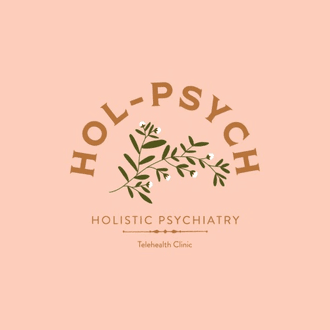
Introduction
Group DBT therapy is an evidence-based approach designed to help individuals develop coping strategies, improve emotional regulation, and enhance interpersonal skills. This structured form of therapy is particularly beneficial for those struggling with mood disorders, PTSD, and other mental health conditions. But who can benefit the most from participating in group DBT therapy? This guide explores the key populations that may find it especially helpful and how they can make the most of this therapeutic approach.
What is Group DBT Therapy?
Dialectical Behavior Therapy (DBT) was originally developed to treat borderline personality disorder but has since been adapted to address a range of mental health challenges. Group DBT therapy focuses on skill-building in four key areas:
- Mindfulness: Learning to stay present and manage emotions effectively, helping individuals become more aware of their thoughts and feelings without acting impulsively.
- Distress Tolerance: Developing techniques to cope with crisis situations and prevent emotional overwhelm.
- Emotion Regulation: Understanding and managing intense emotions to reduce negative responses and promote mental well-being.
- Interpersonal Effectiveness: Improving communication, setting boundaries, and maintaining healthier relationships.
By incorporating these skills, participants learn how to respond to emotional challenges in healthier ways and build a more fulfilling life. For those seeking professional therapy services, Hol-Psych offers group DBT therapy tailored to individual needs.
Who Can Benefit from Group DBT Therapy?
Individuals with Mood Disorders
People diagnosed with depression, bipolar disorder, or anxiety often experience difficulty managing emotions and stressful situations. Group DBT therapy provides practical tools to navigate these challenges, offering:
- Strategies to reduce emotional instability and improve daily mood regulation.
- Techniques to improve distress tolerance and reduce self-destructive coping mechanisms.
- Support from others with shared experiences, creating a sense of community and understanding.
For additional support, Hol-Psych also provides psychiatric care to complement DBT sessions, offering a comprehensive mental health treatment plan.
Individuals with Borderline Personality Disorder (BPD)
DBT was originally developed for individuals with BPD, as it directly addresses:
- Impulsive behaviors that can disrupt personal and professional life.
- Chronic feelings of emptiness and difficulty maintaining stable self-identity.
- Intense mood swings that lead to conflict and distress.
- Relationship difficulties and patterns of unstable interpersonal connections.
Through structured group sessions, participants learn how to regulate emotions, avoid destructive behaviors, and develop healthier relationships with others. The sense of validation and understanding from a group setting can be particularly beneficial for those with BPD.
People with PTSD or Trauma-Related Disorders
Trauma can significantly impact emotional regulation and coping skills. Group DBT therapy helps individuals with PTSD by:
- Teaching grounding techniques to reduce flashbacks and dissociation.
- Offering distress tolerance strategies to manage overwhelming emotions related to trauma.
- Creating a supportive environment where individuals feel safe discussing their experiences and receiving validation.
Those in need of tailored trauma care can also explore Hol-Psych’s services for psychology, which include trauma-informed approaches.
Individuals Struggling with Substance Use Disorders
Many people turn to substances as a way to cope with overwhelming emotions. Group DBT therapy provides healthier alternatives, including:
- Skills to tolerate distress without using substances or engaging in self-destructive behaviors.
- Emotion regulation techniques to reduce relapse risk and build long-term resilience.
- Peer support to encourage accountability and maintain motivation for recovery.
For a more comprehensive approach, additional occupational therapy may be beneficial for rebuilding life skills and addressing underlying factors contributing to substance use.
Adolescents and Young Adults Facing Emotional Dysregulation
Teenagers and young adults often struggle with emotional control, impulsivity, and peer-related stress. Group DBT therapy equips them with tools to manage:
- Social anxiety and fear of judgment in peer interactions.
- Self-harm tendencies and maladaptive coping mechanisms.
- Academic and family-related pressures that lead to emotional distress.
The structured nature of DBT sessions provides young individuals with the consistency and skill-building necessary to improve emotional well-being. Hol-Psych also provides once-off assessments for individuals looking for professional evaluations and recommendations.
Veterans and Individuals Seeking DVA Reports
Veterans experiencing PTSD, anxiety, or depression may find DBT therapy beneficial in managing their symptoms and improving daily functioning. The combination of mindfulness and distress tolerance skills can assist veterans in transitioning to civilian life and maintaining emotional balance. Hol-Psych offers specialized DVA reports for veterans needing documented assessments for ongoing care and mental health support.
How to Get Started with Group DBT Therapy
Step 1: Contact a Professional
The first step in accessing DBT therapy is reaching out to a qualified mental health provider. Hol-Psych offers expert-led group therapy designed to address a variety of mental health challenges.
Step 2: Assessment and Suitability
Before joining a group DBT therapy session, an initial assessment is conducted to determine suitability. This ensures that the therapy aligns with individual needs and treatment goals.
Step 3: Attend Regular Sessions
Consistency is key to achieving results with DBT. Group participants engage in structured sessions covering essential skills, with professional guidance to apply them in daily life. Practicing these skills both inside and outside of sessions is crucial for long-term improvement.
For further assistance, visit our help page or contact us for more details.
Conclusion
Group DBT therapy is an effective solution for individuals facing emotional regulation difficulties, trauma, mood disorders, and other mental health challenges. Whether you’re struggling with distress tolerance, interpersonal relationships, or impulsivity, DBT provides structured, evidence-based strategies to foster long-term improvements.
Explore Hol-Psych’s full range of services, including psychiatric care, group therapy, and medicolegal reports. Take the first step towards better mental health today.



